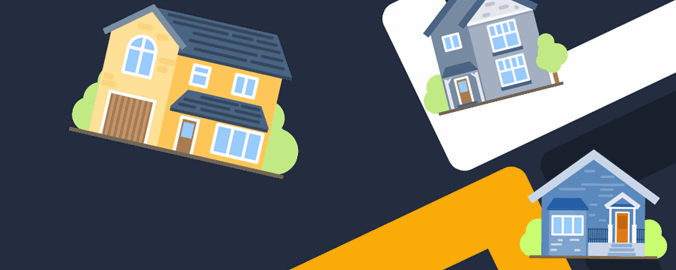
Guide to Property in The United Arab Emirates
Over recent years, property in Dubai has stolen the limelight in terms of real estate success, having reformed its foreign ownership regulations to attract a multitude of investors. While this continues to be the case, other emirates such as Abu Dhabi, Sharjah, Umm al-Qaiwain and Fujairah are growing in importance, having followed suit to absorb the overflowing demand from Dubai. While prices remain comparatively low and economic prospects are high, these emirates are attracting a steady flow of fresh investment.
With a population topping 4.6 million and high per capita income, the UAE economy is growing fast (7.4% in 2007), resulting in extremely strong capital growth and high rental yields for the real estate market. The UAE attracts a large number of affluent expatriates and foreign workers who wish to take advantage of its comparatively low cost of living and tax-free business and residency incentives. Today this group alone makes up more than 75% of the population.
In addition to a booming oil based economy, the UAE’s commercial and financial environments are hugely successful. Not to be forgotten is the fact that the UAE is one of the world’s fastest growing tourist destinations: luxury, state-of-the art holiday resorts and facilities are being built across the emirates to complement natural attributes of sun, sea and sand in abundance, giving the UAE all-round appeal as a truly multi-faceted destination.
Propertyshowrooms.com and Property in the UAE
Diligent investors and homebuyers will be enjoying strong returns from their early purchases in the UAE. We are delighted to be able to offer you carefully vetted property at today’s unbeatable prices.
The standard of living in the UAE is high, largely due to the wealth created by oil and gas. The emirates now complement oil price fluctuations with valuable revenue form regional trading and tourism. Billions of dollars have been pumped into showpiece development projects to create skyscrapers and other edifices of overwhelming proportions, now making the construction industry the third largest sector of the economy, after oil and trade.
Lavish projects continue to attract tourists seeking sheer luxury, along with the fantastic tax-free shopping. Ease of access via six international airports helps render the UAE a worldwide attraction, while a relaxed, quality lifestyle and a warm climate entice investors, expatriates and holidaymakers alike.
Can Foreign Nationals Own Property in the United Arab Emirates?
Foreign nationals are now allowed to buy freehold properties in designated areas of the UAE, while Gulf Cooperation Council (GCC) nationals are can purchase freehold property anywhere in the Emirates.
As the real estate market is still relatively new in the UAE, most property for sale is newly built and foreigners buy within special pre-approved zones. Residency visas are issued upon completion of sale for those buyers who wish to make a permanent move to the UAE.
Buying Procedure
A Sales Agreement is just about the only document required when you buy a property in the UAE; however, it is legally binding and is signed once all legal checks have been undertaken and negotiations have been finalised.
In order to secure a property, a holding deposit of anything from 1,000 to 3,000 GBP is normally paid. This deposit is non-refundable in the event that the buyer decides not to continue with the purchase.
In the next stage, the Purchase Contract, stipulating the payment schedule, is drawn up. Usual payment terms are between 10% and 20% to be paid every three months until completion and the build time is normally between 12 to 36 months. The introduction of the new escrow law in the UAE has been crucial to protecting the interests of property investors. Buyers can be completely sure that their funds are safe and secure because they are held by a third party bank. Off-plan property can be sold at any time during this period, but it will incur a transfer cost of approximately 2%.
The Sales Agreement and other required documents are then lodged at the Land Registry Department.
Solicitors
Government legislation has simplified the purchase procedure greatly throughout the UAE and a solicitor, although recommendable, is not always used, simply because property transfers and contract exchanges are mediated by the relevant property developer and the Land Department. Strict transfer procedures are adhered to by these parties.
A good solicitor will, however, be required to explain the effect of the clauses of UAE mortgage offer documents, as well as highlight any potentially hidden fees that may or may not be disclosed by the financial institution’s representative.
Using an Agent
The number and variety of properties on offer in Dubai can be overwhelming and it is helpful to use a reliable agent who will look at your needs and shortlist the most suitable properties for your circumstances. Propertyshowrooms.com always carefully examines your particular requirements and provides you with a selection of appropriate options from our database. In addition, we can recommend all related professional services you will require to make a safe, reliable purchase. Most of our properties for sale in Dubai are within off-plan developments as they offer the best value for money and represent general demand.
Safeguards
Although escrow funds do not exist in Dubai, the government has formulated a scheme to prevent the developer from overspending on the money invested for off-plan properties. Developers must pay 50% of the purchase price of each unit into a bond that guarantees the completion of the development. Buyers are therefore well protected in the unlikely event that the developer should go bankrupt or doesn't complete on his contract.
Costs
Expect to pay the following costs when purchasing real estate in the UAE:
2.4% stamp duty
1.5% land registry fee
1-8% transfer of off-plan contract cost
Tax
No income tax or capital gains tax is levied in the UAE on rental income or property sales.
Mortgages
Mortgages are now widely available from most banks and some financial institutions in the UAE, with HSBC interest rates currently at approximately 6%. Borrowers may choose between conventional mortgages and Islamic mortgages, 70% of which, interestingly enough, are granted to non-Muslims. A benefit of the Islamic mortgage is the fact that there is no charge for early repayment.



